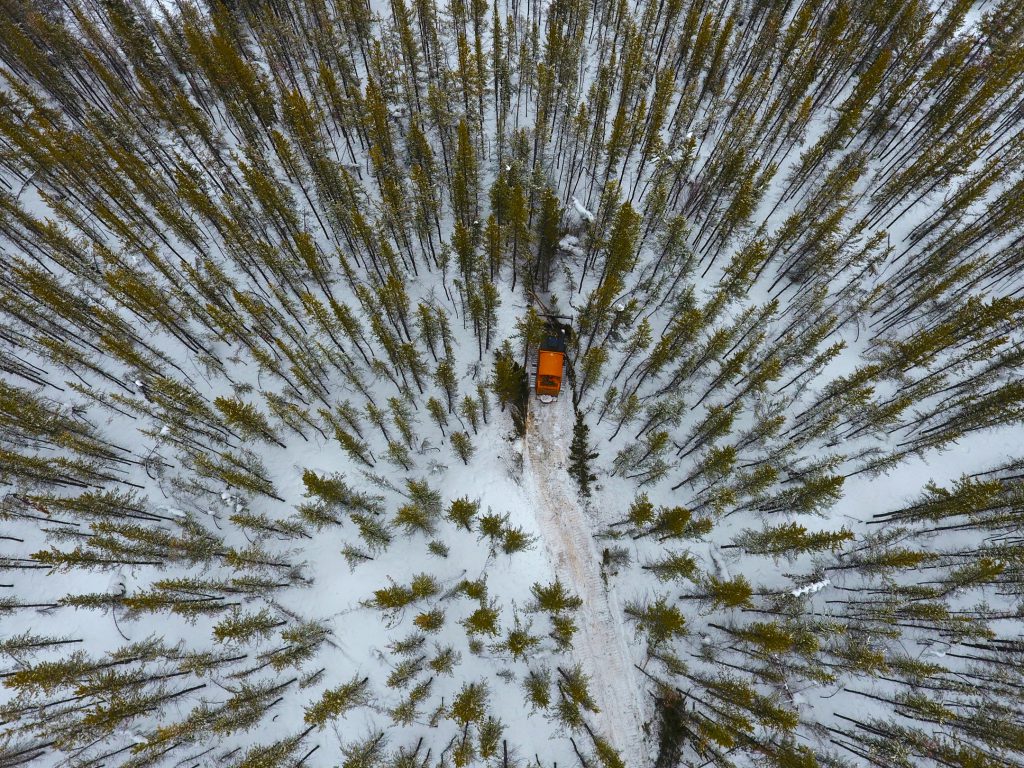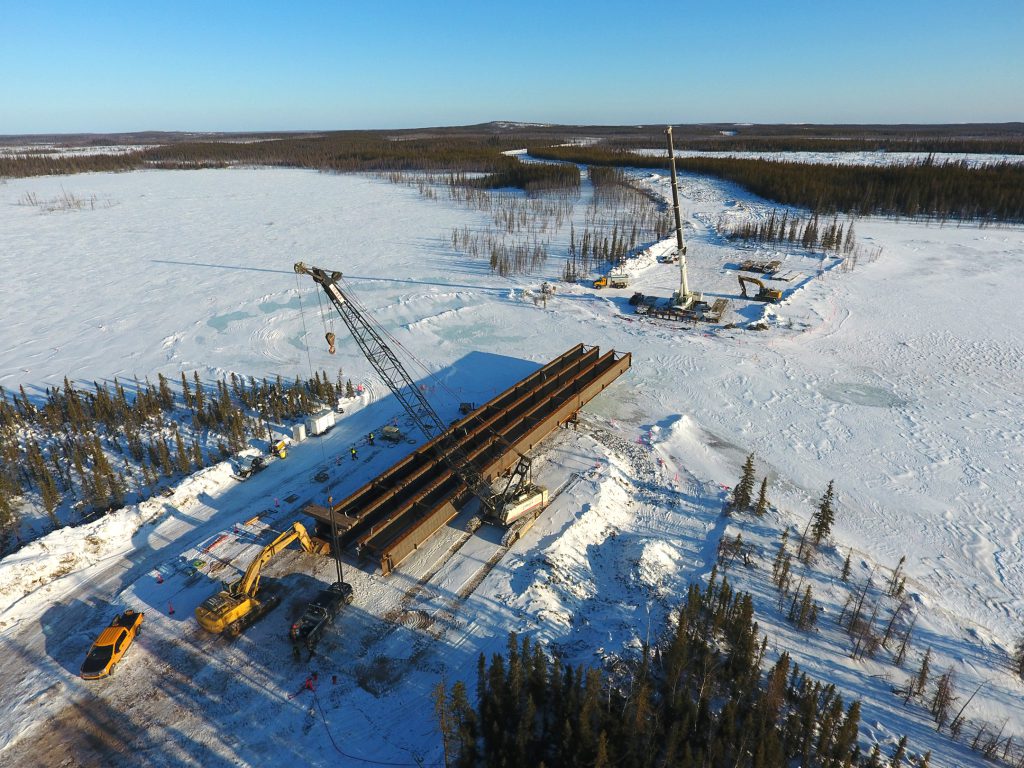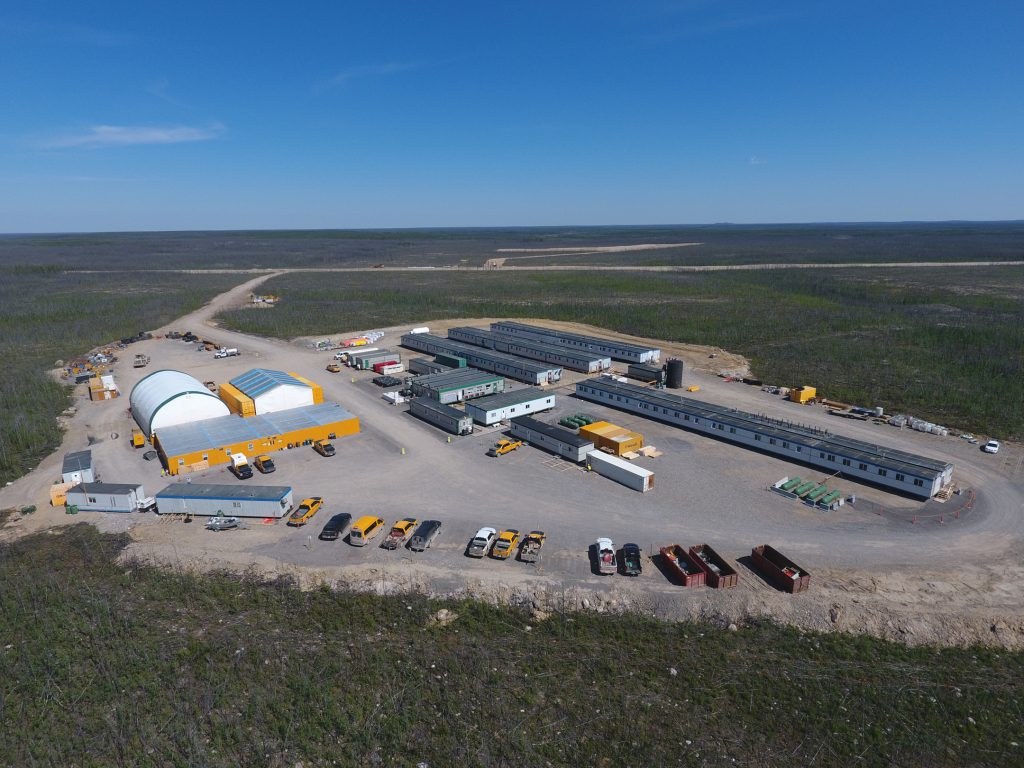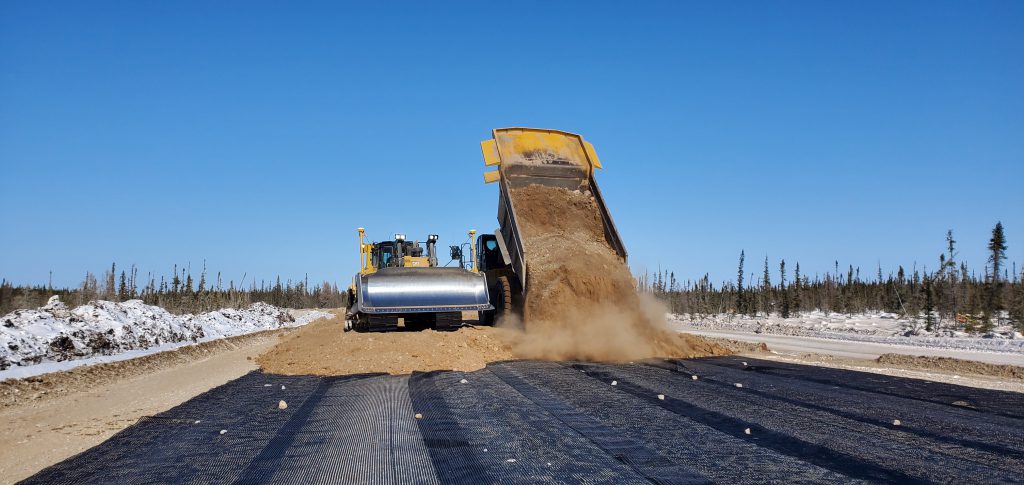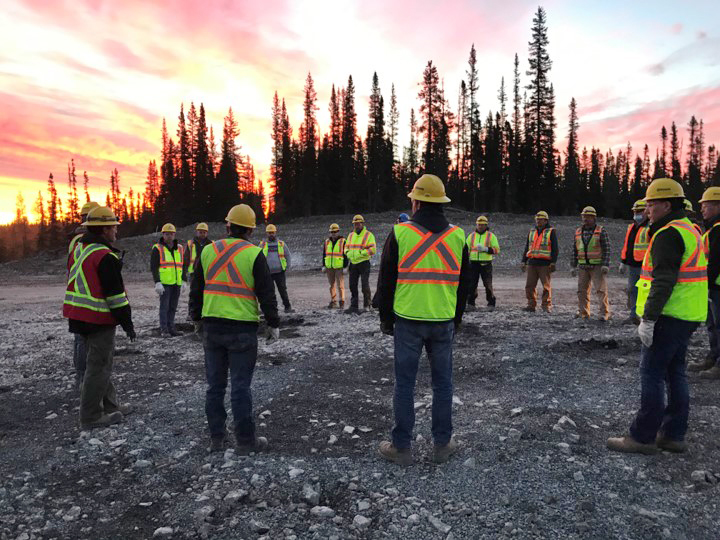In the Northwest Territories, Canada, in a remote and breathtakingly beautiful place, Peter Kiewit Sons ULC is making history for both the company and the citizens of the Tłı̨chǫ lands.
Kiewit is building a 97-kilometer gravel road (about 60 miles) that will provide year-round access to essential services for the residents of the community of Whatì. The project is being delivered using a Design-Build-Finance-Operate-Maintain (DBFOM) model. The Government of the Northwest Territories (GNWT) is the client.
“Kiewit has used this P3 (Public Private Partnership) model many times, but this is the first time we’ve been in every box — developer/equity, design-build and operations and maintenance,” said Sam Chai, who leads Kiewit’s P3 business. “This is also the company’s largest single equity investment in a P3 project.”
Kiewit owns 80% of the project company that will be tasked with maintaining the road for up to 25 years; the remaining 20% is owned by the Tłı̨chǫ Government. For its role in project development, Kiewit was presented with the prestigious Gold Award for Project Development by the Canadian Council for Public Private Partnerships.
The Tłı̨chǫ Government was established following completion of the Tłı̨chǫ Land Claims and Self-Government Agreement, signed by the Tłı̨chǫ, Canada and the GNWT in 2003. The agreement provides self-government and land rights for the Tłı̨chǫ people.
“This road is the result of many years of planning, partnerships and hard work by former and present leaders and our collective governments,” said Tłı̨chǫ government Grand Chief George Mackenzie. “Our partnership with the GNWT and Kiewit has been a great success for our people and companies, and there is great potential for future projects in our region.”
Kiewit Project Manager Rob Cornell said Tłı̨chǫ is a true partner that has been involved in decisions throughout the project, adding that Kiewit has created a valuable partnership with one of the Tłı̨chǫ Investment Corporation’s companies ― Tłı̨chǫ Engineering and Environmental Services (TEES).
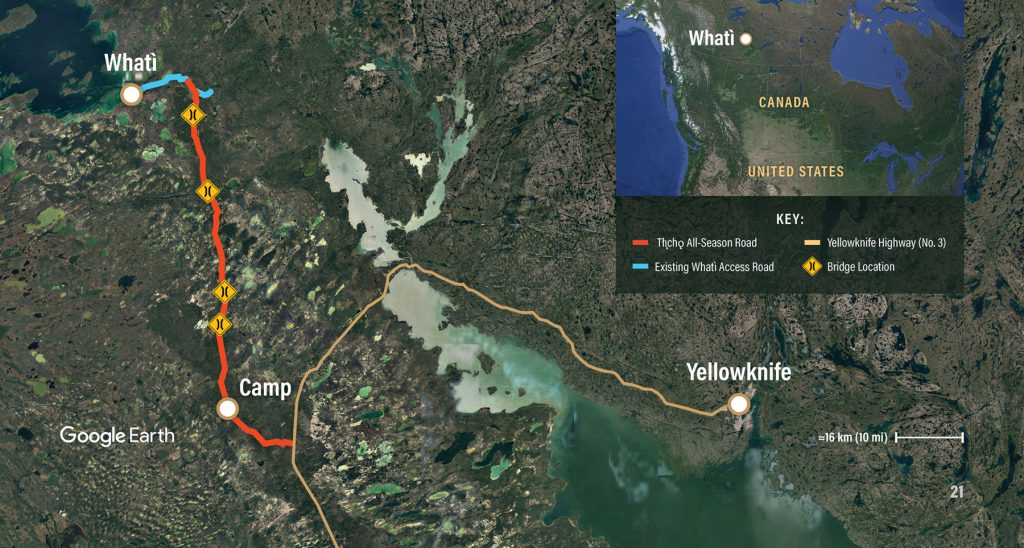
Not an easy road
Working in the Northwest Territories comes with its share of challenges. The Tłı̨chǫ All-Season Road Project is a camp job. The camp is approximately two hours from the city of Yellowknife where the airport is located.
“It’s a logistical challenge,” said Cornell. “Everything has got to be planned out and sequenced properly.” That includes getting equipment, materials and crews into and out of the camp.
Conditions can get even more challenging with drops in temperatures and changes in daylight. Winter months have close to 24 hours of darkness and summer months have almost 24 hours of daylight.
“Working in the dark is extremely challenging, requires extra safety measures and pushes the team to find ways to remain motivated,” he said. “Constant daylight in the summer is nice but poses other challenges like getting enough sleep when the sun shines at night.”
Winter temperatures can reach minus 50 degrees Celsius so the teams have to work in frozen conditions between October and May, with a summer season of about four months to complete most of the work.
If that wasn’t enough, this project team had to deal with the evolving COVID-19 situation. They implemented an extensive COVID-19 mitigation plan that complied with the Chief Public Health Officer’s orders and guidelines to keep workers safe and healthy.
“The project changed its rotation schedule from 20 days in and 10 days out to 28 days in and 14 days out. This move was advantageous because it limited travel in and out of camp; however, it had a big impact on morale and craft retention.
“It was a lot more challenging to keep spirits up,” said Cornell. “Not only were they away from their families for a longer period, they could no longer sit together in the cafeteria or take advantage of the game room and weight room. All that went away.”
They made the best of the situation, finding other ways to get the team to bond while respecting COVID-19 protocols. Indoor activities were replaced with outdoor events such as barbecues and bonfires. The team built an area to play horseshoes, according to Cornell. “Thanks to the great team we had, the challenges turned into opportunities and we stuck together,” he said.
“We could not have asked for a better owner,” Cornell said. “Together, we’ve been able to work through the pandemic as partners, adapting to the situation through on-site testing and detailed protocols.”
On schedule
Despite the challenges, the project remains on schedule. Work began in September 2019 when the team received permits and began setting up a temporary camp.
Construction started on Sept. 2, and the plan was to set up camp and build an access road before winter.
“We achieved a lot more, installing temporary bridges over rivers to get to LaMartre river before Christmas,” said Construction Manager Bruno Pigeon. “That was an 85-kilometer access road to get to the most challenging segment of the project and bringing that work a full year ahead of schedule.”
The team was able to do that by building an ice road, which allowed them to put in the bridge, which gave them access to all the remaining work on the other side of the river.
“It didn’t pull our entire schedule a year ahead, but it took a lot of pressure off,” Cornell said. “We pushed really hard to get that work done. A lot of people made huge sacrifices. Truly, we wouldn’t be where we are without them.”
The project shut down for the holidays, leaving a skeleton crew to watch over the camp and the job. Early in the
new year, they began selective operations, carefully keeping in mind that running the gear in such harsh conditions comes at a cost. They managed to get a winter placement spec with non-frost susceptible material and continued forging ahead.
Last year was a busy one, with four permanent bridges built and 97 kilometers of roadway subgrade completed. The camp reached capacity at 200 people and gravel topping was placed on the first 45 kilometers of the project. This year will be another busy one as the team completes the other half of the road, installs signs, guardrails and gets ready to open for traffic in November.
The Tłı̨chǫ-Kiewit partnership is finalizing a contract to bring high speed internet to Whati residents.
“The fiber optic project will add to the current scope, but also allow us to share resources and save cost for the client, the partner and Kiewit,” said Cornell.
When construction is completed in the fall, the team has to demobilize all installations and equipment in order to reach substantial completion Nov. 31.

